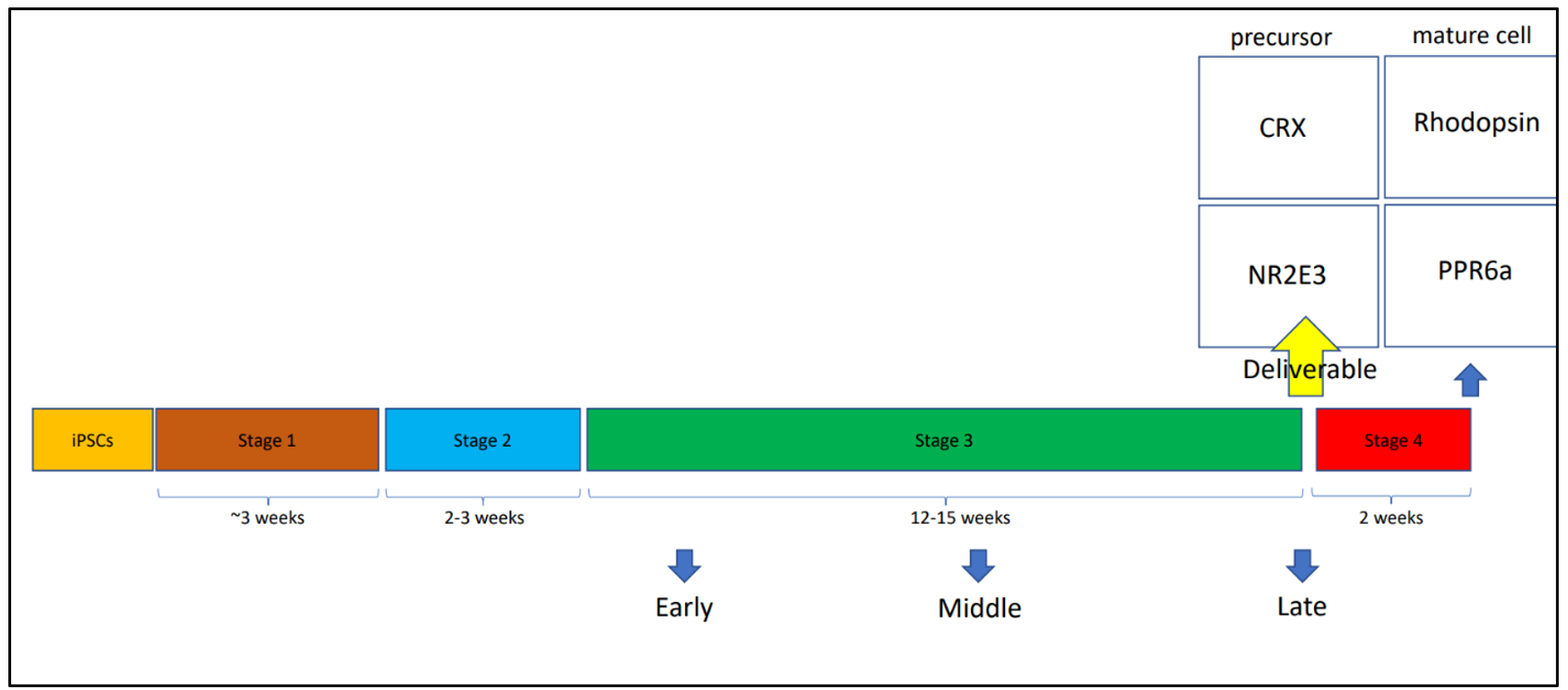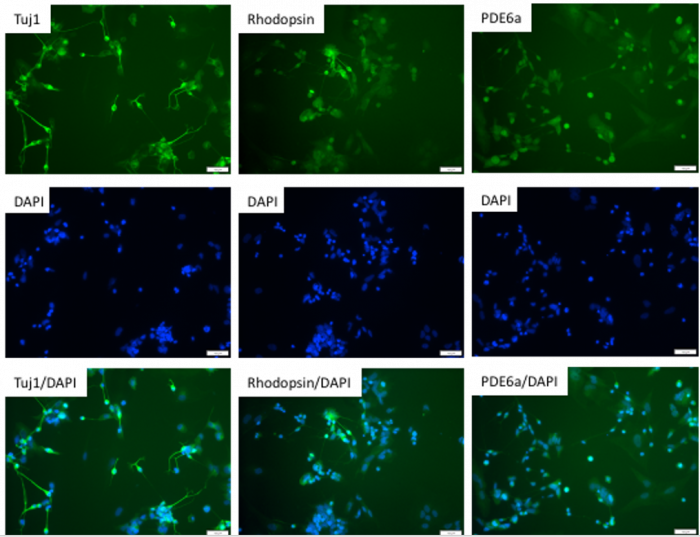Photoreceptor Cell Differentiation Service Details
iPSC-derived photoreceptor refers to a type of photoreceptor cell that is generated through the use of induced pluripotent stem cells (iPSCs) that have been differentiated into photoreceptor cells.Photoreceptor cells are specialized cells in the retina of the eye that detect light and initiate the visual process. Dysfunction of photoreceptor cells can lead to a range of vision disorders, such as age-related macular degeneration and retinitis pigmentosa.The use of iPSCs to generate photoreceptor cells provides researchers with a valuable tool for studying the development and function of these cells, as well as for developing new treatments for vision disorders. iPSC-derived photoreceptor cells can also be used for drug screening and toxicity testing, as they provide a reliable and reproducible source of human cells that are difficult to obtain from traditional sources.
Overall, iPSC-derived photoreceptor cells have the potential to revolutionize the field of vision research by enabling more precise and personalized approaches to studying and treating vision disorders.
Standard Packaging:
- Ship 1-2 million iPS cells (1-2 cryovials; 1 million cells/vial); OR
- With pathogen and SARS-CoV-2 test results
- Optional Pathogen Testing Service is available
- With pathogen and SARS-CoV-2 test results
- Select one of our Control iPS Cell Lines; OR
- Let ASC generate your iPSCs from your human or non-human samples
Standard Deliverables:
- 2 million differentiated cells
- Data & Report
- Biomarkers:
- Standard: Rhodopsin
- CRX, NR2E3, Tuj1, PPR6a - Inquire
- Biomarkers:
- Send us your iPSCs or take a look through our inventory of iPSC lines
- We will differentiate the cells you need
Standard Workflow and Timeline:

Figure 1: iPSC generation through photoreceptor differentiation.
Turnaround time ≈ 3 months


